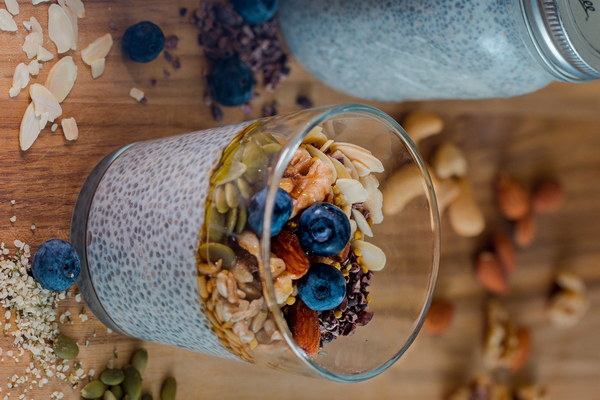Nurturing Liver Health Scientific Therapies for Optimal Liver Care
Introduction:
The liver, often referred to as the body's biochemical factory, plays a crucial role in maintaining overall health. However, due to poor dietary habits, excessive alcohol consumption, and various lifestyle factors, liver health can be compromised. To safeguard this vital organ, it is essential to adopt a scientific approach to liver care. This article delves into the latest research and therapeutic strategies for nurturing liver health.
1. Dietary Adjustments:
A balanced diet is the cornerstone of liver health. The following dietary adjustments can help protect and improve liver function:
a. Increase consumption of fruits and vegetables: These foods are rich in antioxidants and vitamins, which aid in neutralizing harmful substances and reducing oxidative stress on the liver.
b. Limit alcohol intake: Excessive alcohol consumption can lead to liver disease, such as fatty liver and cirrhosis. It is advisable to limit alcohol intake or abstain altogether.
c. Choose lean proteins: Incorporating lean proteins such as fish, chicken, and tofu can support liver function and aid in the repair of damaged liver cells.
d. Avoid processed foods and high-fat diets: These foods can contribute to the development of fatty liver disease and increase the risk of liver inflammation.
2. Exercise:
Regular physical activity is crucial for maintaining liver health. Exercise can:

a. Improve insulin sensitivity, reducing the risk of diabetes and its associated liver damage.
b. Aid in weight management, which is vital for preventing fatty liver disease.
c. Enhance the body's ability to metabolize and eliminate toxins, thereby reducing the burden on the liver.
3. Detoxification:
The liver's primary function is to filter toxins from the bloodstream. To support this process, consider the following detoxification strategies:
a. Hydration: Adequate water intake helps flush out toxins from the body, including the liver.
b. Milk thistle: This herbal supplement contains silymarin, a compound that supports liver function and protects against oxidative stress.
c. Glutathione: A potent antioxidant, glutathione can help neutralize harmful substances and enhance liver detoxification.
4. Medications and Supplements:
Certain medications and supplements can aid in liver health. These include:
a. Antiviral drugs: For those with viral hepatitis, antiviral medications can help control the infection and minimize liver damage.
b. Statins: For individuals with high cholesterol, statins can help reduce the risk of cardiovascular disease, which indirectly supports liver health.
c. Vitamin E: This fat-soluble vitamin has been shown to improve liver function and reduce inflammation.
5. Stress Management:
Chronic stress can exacerbate liver inflammation and impair its ability to function properly. Effective stress management techniques include:
a. Mindfulness meditation: This practice helps reduce stress levels and promote relaxation.
b. Deep breathing exercises: These techniques can help calm the mind and reduce stress.
c. Regular relaxation techniques: Activities such as yoga, tai chi, or even a warm bath can help alleviate stress.
Conclusion:
Nurturing liver health is essential for overall well-being. By adopting a scientific approach that includes dietary adjustments, regular exercise, detoxification, medications, and stress management, individuals can protect their liver and reduce the risk of liver disease. Always consult with a healthcare professional before making any significant changes to your lifestyle or treatment plan.









